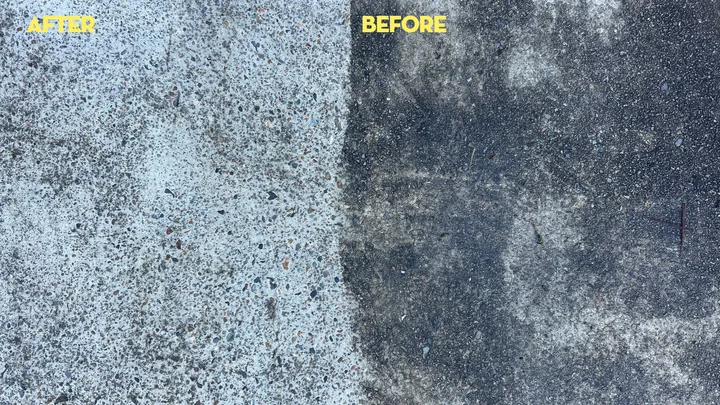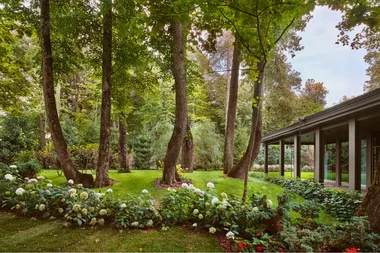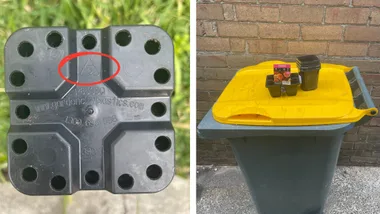At some point, without us noticing, our concrete driveway became covered in a grimy mix of mould, mildew, and dirt. With two young kids who don’t sleep and a to-do list that never ends, scrubbing the driveway fell to the very bottom of our priorities — until now.
Naturally, I turned to Reddit for advice. While I originally set out to test a specific concrete cleaner or eco-friendly vinegar scrubs, one tip kept coming up. Shared by professional concreters and seasoned DIYers alike: chlorine + a Gerni seemed like a simple and affordable option.
I decided to give it a go, and I’m so glad I did. It was gross. But similar to my recent oven rack cleaner test, it was also ridiculously satisfying.
How to clean a concrete driveway with chlorine and a pressure washer
I don’t usually mix up internet-sourced chemical recipes at home, but this one seemed safe as long as I wore gloves, kept the kids away, and didn’t do anything silly.
Filling a 9L watering can with around 8L of water, I added roughly 1 cup of chlorine (the pool kind — nothing fancy). I poured the solution evenly across the worst-affected parts of the driveway and let it dry. Then came the fun part: Gerni time. I borrowed one from my father-in-law, and the black mildew lifted right off with minimal effort.
Now, let’s be real — cleaning a driveway is still hard work. It took a couple of hours to finish the whole area. But compared to our previous attempt (trying to Gerni without chlorine and giving up halfway), this method was a game-changer. And yes, it also worked on moss.
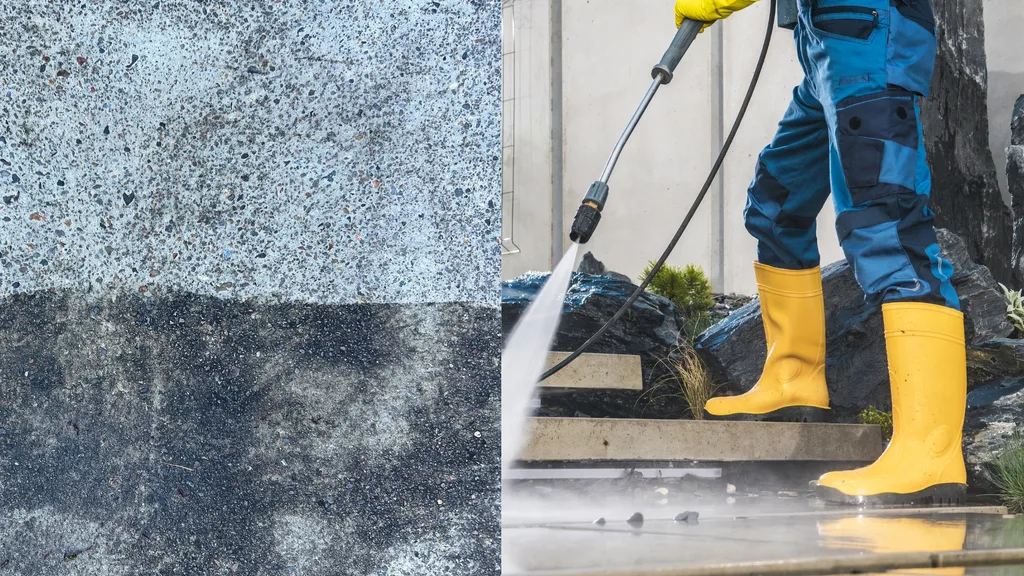
What I loved
Watching the mould and dirt lift off the surface was weirdly satisfying, like giving the driveway a long-overdue deep clean. Best of all, it tackled mildew, moss, and general build-up all in one go, revealing concrete I hadn’t seen in years.
What could be better
The main downside? The driveway smelled like a pool for a day or two, which wasn’t ideal with young kids and a curious cat around. I made sure to hose it down thoroughly after cleaning to minimise any leftover chlorine.
I also had to be mindful of run-off, since chlorine can damage nearby plants or grass, so I blocked off garden beds just in case. And while this method worked brilliantly for my standard concrete driveway, I wouldn’t recommend it for sealed or decorative concrete without testing a small area first, as it’s a strong solution.
Other ways to clean concrete (if you don’t want to use chlorine)
If chlorine isn’t your thing, there are a few other cleaning options I haven’t personally tried yet, but they come highly recommended.
One popular method is a combination of vinegar and baking soda. Spray an equal mixture of white vinegar and water over the stained concrete, then sprinkle baking soda over any greasy spots and scrub with a soft-bristled brush. Rinse the area thoroughly with warm water.
You can also try a concrete degreaser from the hardware store. They’re great for oil stains and built-up grime, but be sure to scrub and rinse thoroughly to avoid any residue.
Another option is to look for biodegradable cleaners made with plant-based ingredients and low-impact detergents, especially if your driveway is located near lawns, stormwater drains, or garden beds. Whatever you use, it’s always a good idea to rinse thoroughly with fresh water afterwards.
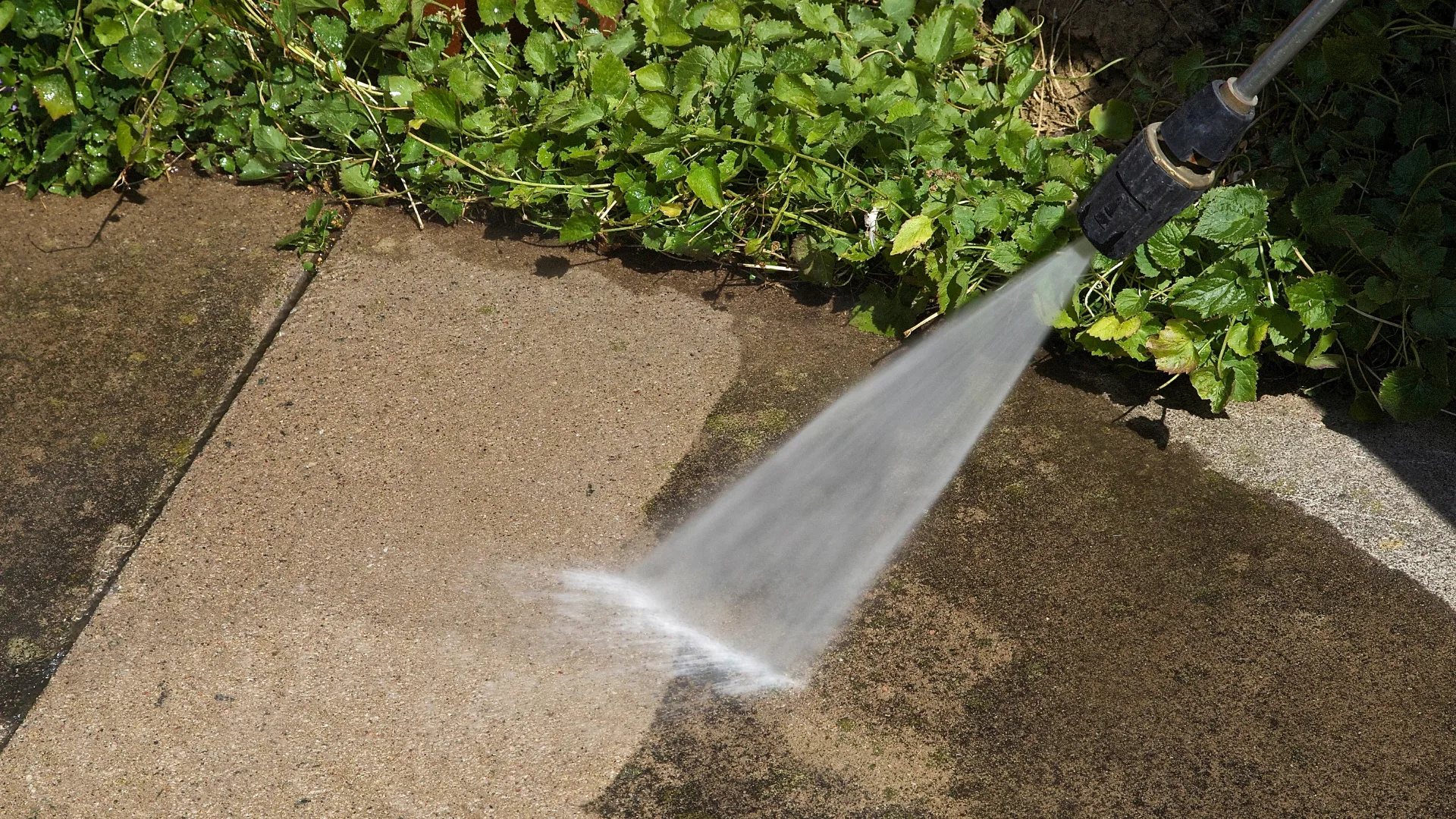
What not to use on concrete
Not all cleaning methods are safe for concrete surfaces, especially if they’re sealed or decorative. Harsh acids, such as hydrochloric acid, should only be used when preparing concrete for sealing or etching. Similarly, bleach can be problematic on coloured concrete.
Avoid using wire brushes, as they can scratch the surface, making it more porous and vulnerable to future staining. And while it may be tempting to use everyday soap, it’s not ideal for cleaning concrete. Soap can leave a filmy residue behind that attracts more dirt and grime.
How to keep your concrete looking clean
Once your concrete is clean, a few simple habits can help it stay that way. Sweep regularly to remove dirt, leaves, and debris before they settle in and cause staining. Always clean up spills quickly, especially those of oil or grease, which can seep into porous concrete and become difficult to remove.
For longer-term protection, consider applying a concrete sealer. This adds a layer of defence against stains, moisture, and mildew build-up. And finally, give your driveway or patio a quick rinse with water after heavy rain, gardening sessions, or DIY projects, especially if mud, chemicals, or paint are involved.
What I’d do differently next time
Since posting this, I’ve had a few friends try the chlorine and Gerni trick themselves with similarly satisfying results. If I were to do it again, I’d use a pressurised weed sprayer instead of a watering can to get more even coverage and save time. I’d also be more careful around garden beds. Chlorine is powerful stuff, and it doesn’t mix well with plants you want to keep alive.
Where to buy
- Chlorine (Liquid) – this can be purchased for as little as $2.50 per litre from Bunnings.
- Pressure Washer (Gerni) – This is the pressure washer I borrowed. You can also hire them.
